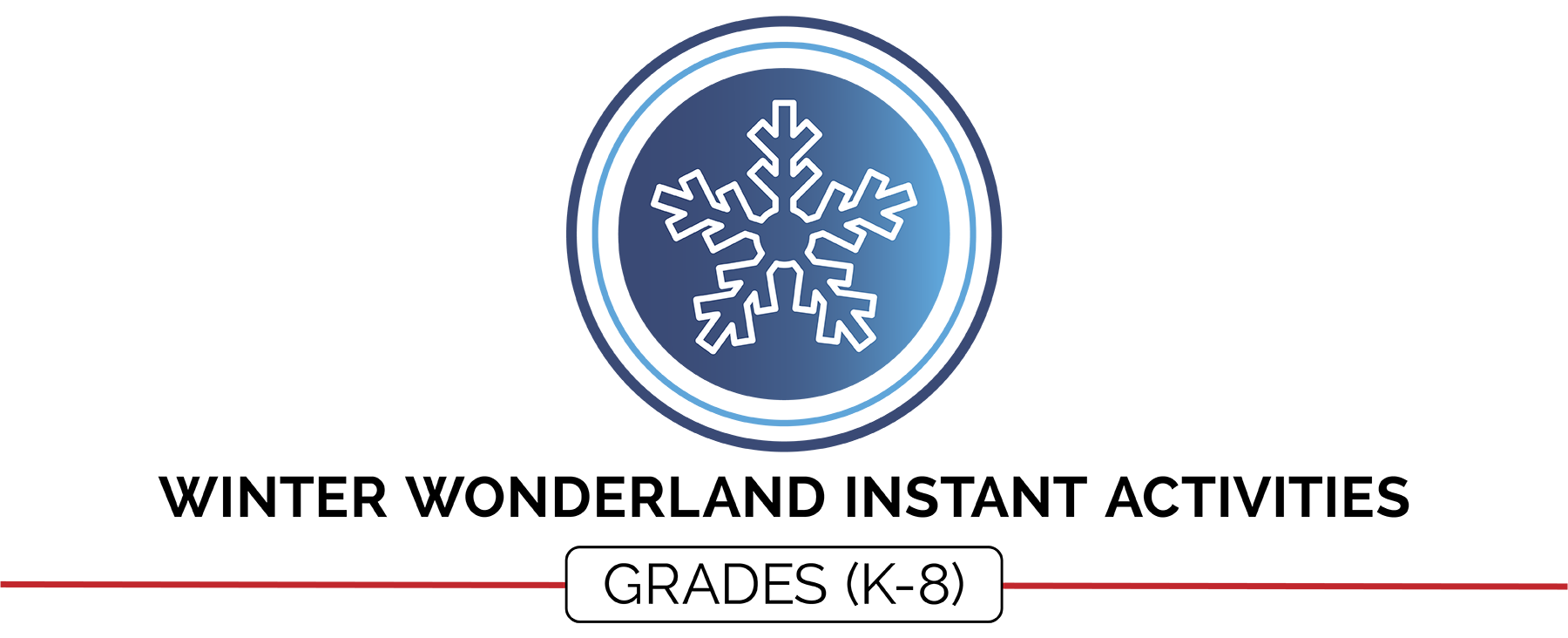Every year, right around the holiday season, students start to fall into a frenzy of excitement, forget their impulse control basics, and can use a little physical education etiquette reminder. OPEN’s winter-themed instant activity module was designed just for that!
We’ve organized our collection of fun and engaging instant activities with social and emotional learning academic language posters. Each academic language word are reinforce in a SEL Vocabulary Journal modeled after the journal charts described in Marine Freibrun’s example in her blog post – 5 Tips for Teaching Academic Language (https://minds-in-bloom.com/5-tips-for-teaching-academic-language/).
Plus, we’ve moved our popular Reindeer Games into this collection for easy click and print!
Module Documents
- Complete Winter Wonderland Packet: [PDF Only]
- Module Overview: [PDF, WORD]
- Academic Language Cards: [PDF, WORD]
- Reindeer Snowflake Map Card: [PDF, WORD]
- Reindeer Snowflake Stations: [PDF, WORD]
- Ornament Cut Outs: [PDF, WORD]
- Relay Activity Card: [PDF, WORD]
Student Assessment
More Social and Emotional Education
Looking for Classroom-based Snowman Games?
- Here’s three activities in one complete [PDF PACKET]
Need Station Music?
- Station Music [Spotify, Apple Music]
Winter Wonderland Activity Plans
- Ornaments in the Attic: [PDF, WORD]
- No Grinches Allowed: [PDF, WORD]
- Snowmobile Tag: [PDF, WORD]
- Polar Bear Cave: [PDF, WORD]
- Ice Fishing: [PDF, WORD]
- Elf on the Shelf Tag: [PDF, WORD]
- North Pole vs South Pole: [PDF, WORD]
- Gift Ninjas: [PDF, WORD]
- Gift Wrappers: [PDF, WORD]
- Gingerbread Gumdrops: [PDF, WORD]
- Christmas Tree Relay: [PDF, WORD]
- Menorah Relay: [PDF, WORD]
- Kinara Relay: [PDF, WORD]
OPEN Priority Learning Outcomes
Demonstrates Responsible Behaviors – Working with Others
(K) Shares equipment and space with others. (1) Works independently with others in a variety of class environments. (2) Accepts responsibility for class protocols with personal and cooperative behavior as well as performance actions. (3) Works cooperatively with others. (4) Accepts “players” of all skill levels into the physical activity. (5) Accepts, recognizes, and actively involves others with both higher and lower skill abilities into physical activities and group projects. (6) Accepts differences among classmates in physical development, maturation, and varying skill levels by providing encouragement and positive feedback. (7) Demonstrates cooperation skills by establishing rules and guidelines for resolving conflicts. (8) Responds appropriately to participants’ ethical and unethical behavior during physical activity by using rules and guidelines for resolving conflicts.
Values Physical Activity – Personal Enjoyment
(K) Identifies physical activities that are enjoyable. (1) Describes positive feelings that result from physical activity participation. (2) Discusses personal reasons for enjoying selected physical activities. (3) Reflects on the reasons for enjoying selected physical activities. (4) Ranks the enjoyment of participating in different physical activities. (5) Analyzes different activity choices for enjoyment and identifies reasons for positive or negative responses. (6) Describes how moving competently creates enjoyment and self-expression. (7) Explains the relationship between self-expression and lifelong enjoyment of physical activity. (8) Discusses ways to increase enjoyment in self-selected physical activities.
CASEL Social & Emotional Learning Competencies
SELF-MANAGEMENT
- Regulate emotions, thoughts, behaviors in different situations.
- Mange stress, control impulses, motivate oneself.
- Set and work toward personal goals.
SOCIAL AWARENESS
- Ability to see different points of view and empathize with all people.
- Ability to understand social and ethical norms for behavior.
- Ability to recognize family, school and community resources and supports.
RESPONSIBLE DECISION-MAKING
- Ability to make constructive choices about personal behavior and social interactions based on ethical standards, safety concerns, and social norms.
- Ability to evaluate consequences of actions
- Ability to consider the well-being of oneself and others.
SELF-AWARENESS
- Ability to understand how emotions and values influence behavior.
- Ability to assesses strengths and limitations with confidence, optimism, and growth mindset.

